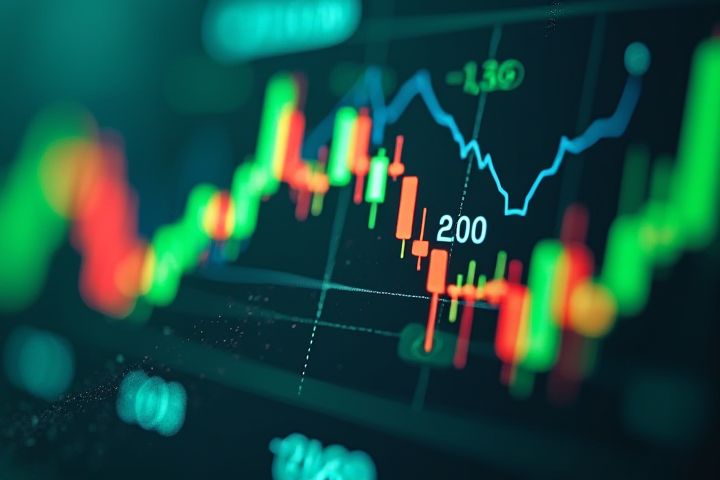
The Nigeria stock market, operated by the Nigerian Exchange Group, plays a pivotal role in the country's economy by facilitating capital formation and investment opportunities. It features a diverse range of sectors, including telecommunications, banking, and consumer goods, allowing investors to diversify their portfolios. With over 160 listed companies, the market capitalization often surpasses $40 billion, reflecting the dynamic nature of Nigeria's economic landscape. You can track stock performance through various indices, such as the NSE All-Share Index, which captures the performance of all listed equities. In recent years, technological advancements and increased interest from foreign investors have further enhanced trading efficiency and liquidity in the Nigerian markets.
Lagos is the primary financial hub.
The Nigeria stock market, concentrated in Lagos, serves as the nation's leading financial center, showcasing a diverse array of equities and investment opportunities. Home to the Nigerian Exchange Group, it facilitates stock trading and provides critical financial services for both local and international investors. This robust market environment is bolstered by regulatory oversight from the Securities and Exchange Commission, ensuring transparency and investor protection. With its rich array of sectors including telecommunications, banking, and consumer goods, Lagos positions itself as a dynamic player in Africa's emerging markets.
Nigerian Stock Exchange is now Nigerian Exchange Group.
The Nigerian Exchange Group has emerged as the central entity overseeing the Nigerian stock market, transforming the landscape of financial transactions. This rebranding reflects a commitment to modernizing trading infrastructure and enhancing market accessibility for investors. By offering a diverse array of financial instruments, the Nigerian Exchange Group aims to attract both local and international investors, thereby boosting economic growth. You can explore various market segments, including equities, fixed income, and exchange-traded funds, to make informed investment decisions.
All Share Index measures market performance.
The Nigeria Stock Exchange All Share Index (NSE ASI) is a crucial benchmark for assessing the overall performance of the Nigerian stock market. It encompasses all listed equities, providing a comprehensive view of market movements and investor sentiment. Analysts often examine the NSE ASI for trends that can guide investment decisions and portfolio management strategies. By monitoring fluctuations in this index, you can gain valuable insights into economic conditions and market dynamics within Nigeria.
Top sectors include banking and oil & gas.
The Nigeria stock market is significantly influenced by its top sectors, notably banking and oil & gas. The banking sector showcases leading financial institutions that drive economic growth, contributing to a substantial percentage of market capitalization. Meanwhile, the oil & gas sector remains a crucial component, as it provides a major source of revenue and foreign exchange for the country. Investors often monitor performance trends within these sectors to make informed decisions regarding their portfolios.
Stock trading is done in Nigerian Naira.
The Nigeria stock market operates primarily in Nigerian Naira, the country's official currency, facilitating local and foreign investments. Stock trading encompasses a diverse range of sectors, including telecommunications, agriculture, and finance, offering investors various opportunities. Regulatory bodies like the Securities and Exchange Commission (SEC) ensure market integrity and protect investors' interests. As an investor, understanding the dynamics of the Nigerian stock market can enhance your portfolio's performance.
Initial Public Offerings are key for growth.
The Nigeria stock market is experiencing significant growth driven by Initial Public Offerings (IPOs), which attract both local and foreign investors. Notable IPOs enhance market liquidity and provide companies with the capital necessary for expansion and innovation. Your investment in these IPOs can contribute to the diversification of your portfolio while supporting the economic development of Nigeria. By participating in the Nigeria stock market, investors can tap into emerging industries and take advantage of the country's dynamic economic landscape.
Foreign investor participation is significant.
Foreign investor participation in the Nigeria stock market is a crucial driver of economic growth and market liquidity. With its diverse sectors, including banking, telecommunications, and consumer goods, Nigeria offers ample opportunities for international investors seeking high returns. The Central Bank of Nigeria and the Securities and Exchange Commission play key roles in regulating and promoting foreign investment, ensuring a stable environment. Your investment in Nigerian equities can contribute to the country's financial market development while potentially yielding attractive gains.
Market subject to currency volatility.
The Nigerian stock market is significantly influenced by currency volatility, primarily driven by fluctuations in the Naira's exchange rate against major currencies. Investors are often faced with risks associated with foreign exchange manipulation and inflationary pressures, which can adversely affect market performance. This instability impacts foreign investments, as potential investors weigh the risks of currency depreciation against potential returns. To navigate these challenges, you may need to employ strategies, such as diversifying your portfolio or utilizing hedging techniques, to mitigate risks linked to currency fluctuations.
Tech adoption in trading platforms rising.
The Nigerian stock market is increasingly embracing technology adoption, significantly transforming trading platforms. Digital innovations, such as mobile trading applications and blockchain integration, enhance accessibility and efficiency for investors. The rise of fintech solutions facilitates real-time data analysis and improved transaction security, drawing a broader range of participants to the market. As you engage with these advanced platforms, expect a more streamlined trading experience and greater potential for investment growth in Nigeria's dynamic financial landscape.
Regulatory oversight by SEC Nigeria.
The Nigerian stock market operates under the regulatory framework established by the Securities and Exchange Commission (SEC) Nigeria, which plays a crucial role in ensuring transparency and fairness within the market. SEC Nigeria is responsible for monitoring trading activities, enforcing compliance with securities laws, and protecting investors' interests. By implementing stringent guidelines and conducting regular audits, the SEC fosters a stable investment environment that encourages both local and foreign investments. As a participant in this market, understanding the significance of SEC regulations can enhance your investment decisions and strategies.
